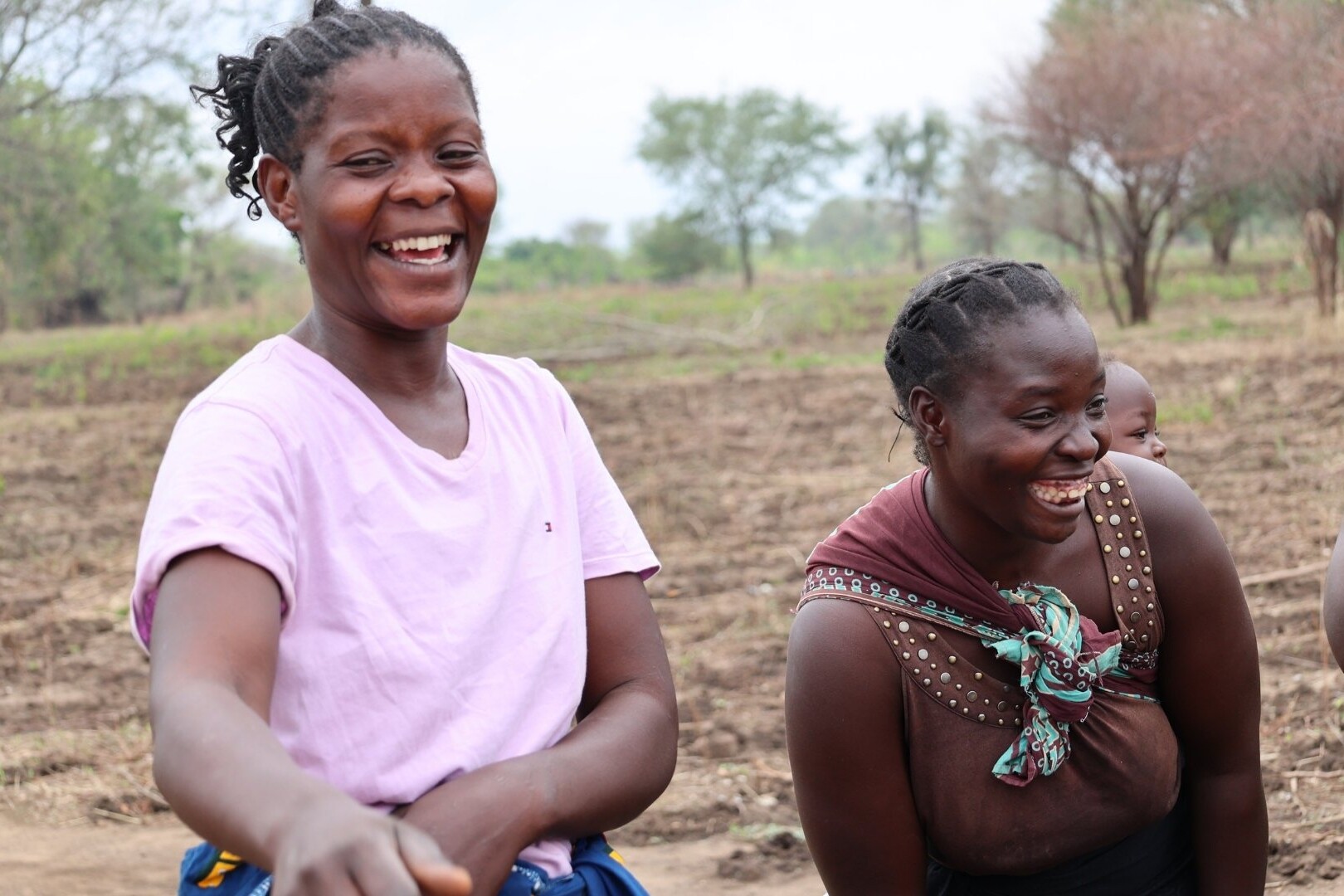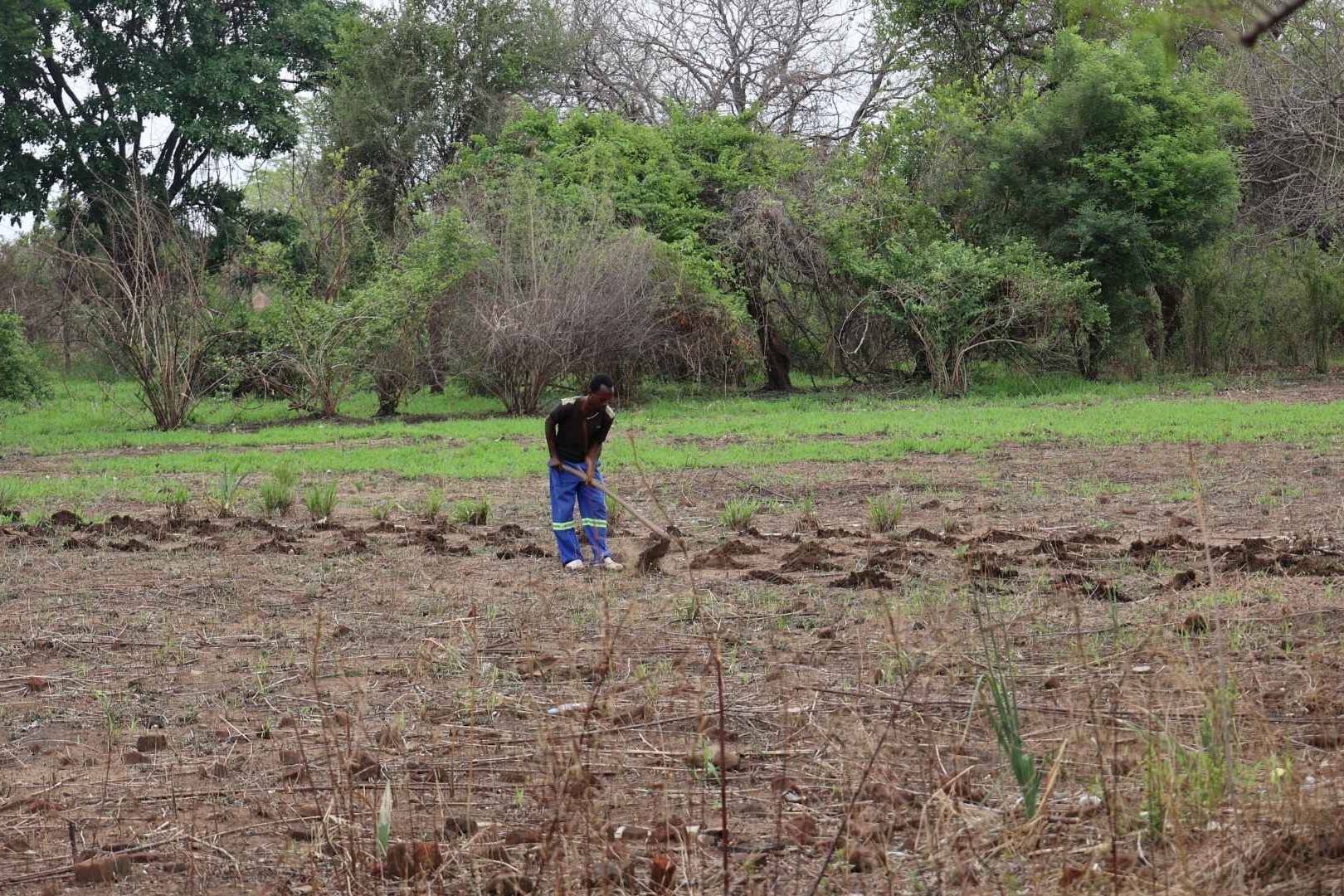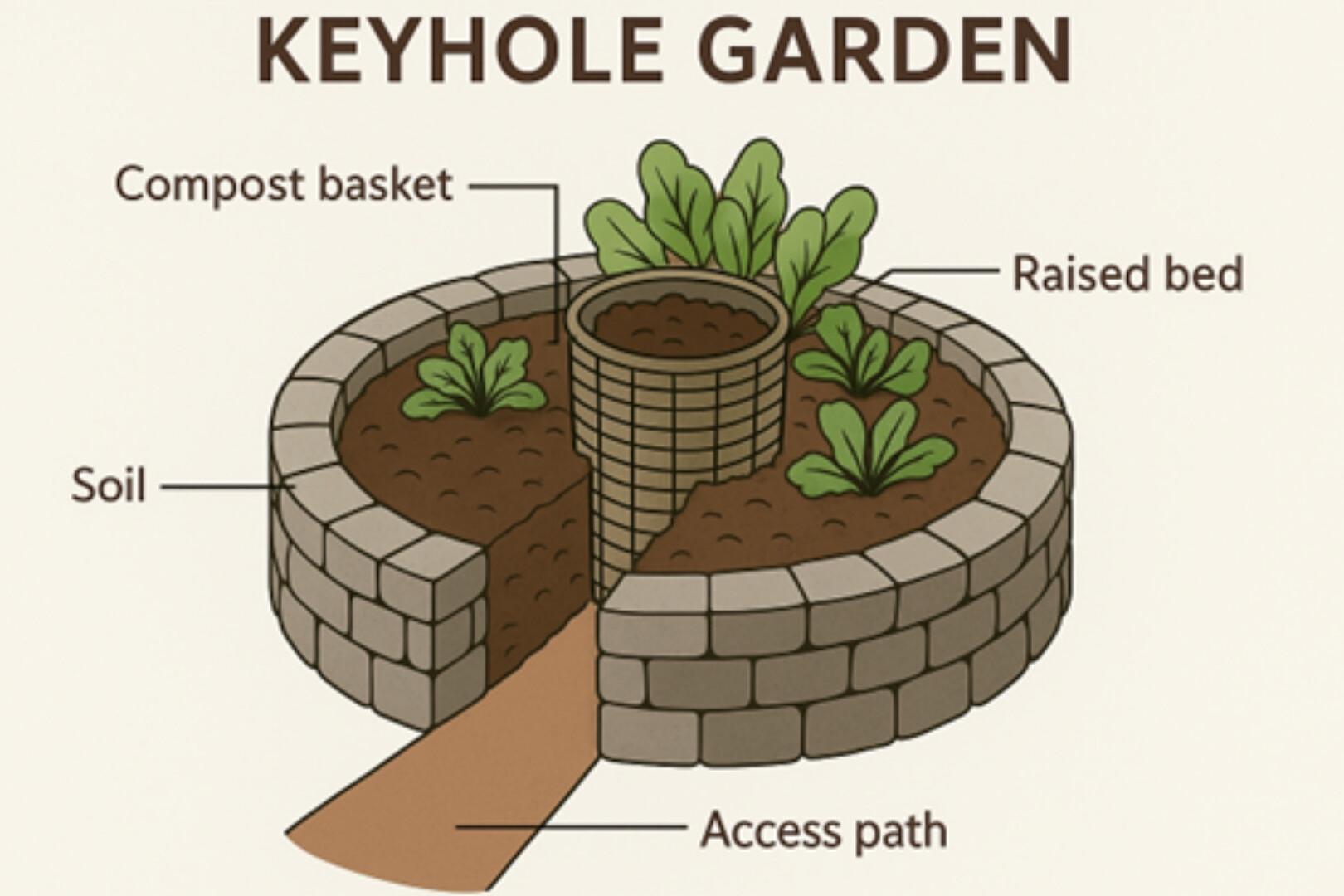Article
22nd August 2025
3 minute read

Safe Water and Food
As a charity in the safe water, sanitation, and hygiene (WASH) sector, we are always looking for ways to broaden the impact of our work. On a recent visit to Zambia, we spoke to Simushi Shalala about the impact that plants and crops can have on communities after they have access to safe water.
Shalala said: “It is important to link WASH and nutrition. So, when it comes to WASH, the focus is on providing safe and clean water to the community. But we should also be able to ensure that nutrition is enhanced.”
Shalala is the Community Mobilisation Officer for Empowered Communities Helping Others (ECHO), Just a Drop’s partner organisation in Zambia. He spoke passionately about safe water and nutrition’s ability to boost communities’ health and wellbeing.
Asked how nutrition could be enhanced, Shalala explained that: “This goes by ensuring that every household gets to have a fruit tree and also a keyhole garden.”

Keyhole Gardens
One of ECHO and Just a Drop’s programmes for harnessing the joint impact of nutrition and safe water is the use of these gardens. Keyhole gardens were first implemented in Lesotho in 1990, designed to allow people with limited mobility to tend crops close to their homes. Their raised form and tall plants make them accessible from a standing position, while also providing support for people to hold onto. Because of their suitability to arid environments, they soon spread to communities worldwide.
Their name comes from their distinctive shape: a keyhole-shaped indentation leads to a compost basket, where food waste and household wastewater can be deposited to enrich the soil. The gardens are surrounded by a stone wall to retain water in dry climates, and their base is made of stone and sticks, which makes them self-draining.
As Shalala explained: “You can have rape, Chinese leaf, even tomatoes. So, the keyhole garden can be watered by waste water, maybe greywater, let’s say. So, when the women are done with the washing, say, instead of discarding the water and the water going to waste, they can throw the water onto the keyhole garden. That will also help ensure that every drop counts.”
One of the main benefits of keyhole gardens is that they prioritise short-rooted vegetables, meaning that a wide variety crops can be grown in close proximity. They also support succession growing, where new crops are planted immediately after others are harvested, enabling households to have vegetables all year round.
ECHO is working to ensure that most households will have keyhole gardens, as well as fruit trees, so that communities can further enhance their health with access to a wide range of vitamins and nutrients.

SDG 2: Zero Hunger
Just a Drop contributes to eleven of the United Nations Sustainable Development Goals (SDGs). Beyond SDG 6: Clean Water and Sanitation, we also support SDG 2: Zero Hunger. By implementing smart solutions such as keyhole gardens – which provide food and nutrition in arid and water-scarce environments – we ensure that the impact of our programmes goes far beyond providing access to safe drinking water.
Read more about our contributions to the Sustainable Development Goals on our website, or watch our interview with Shalala about keyhole gardens below.